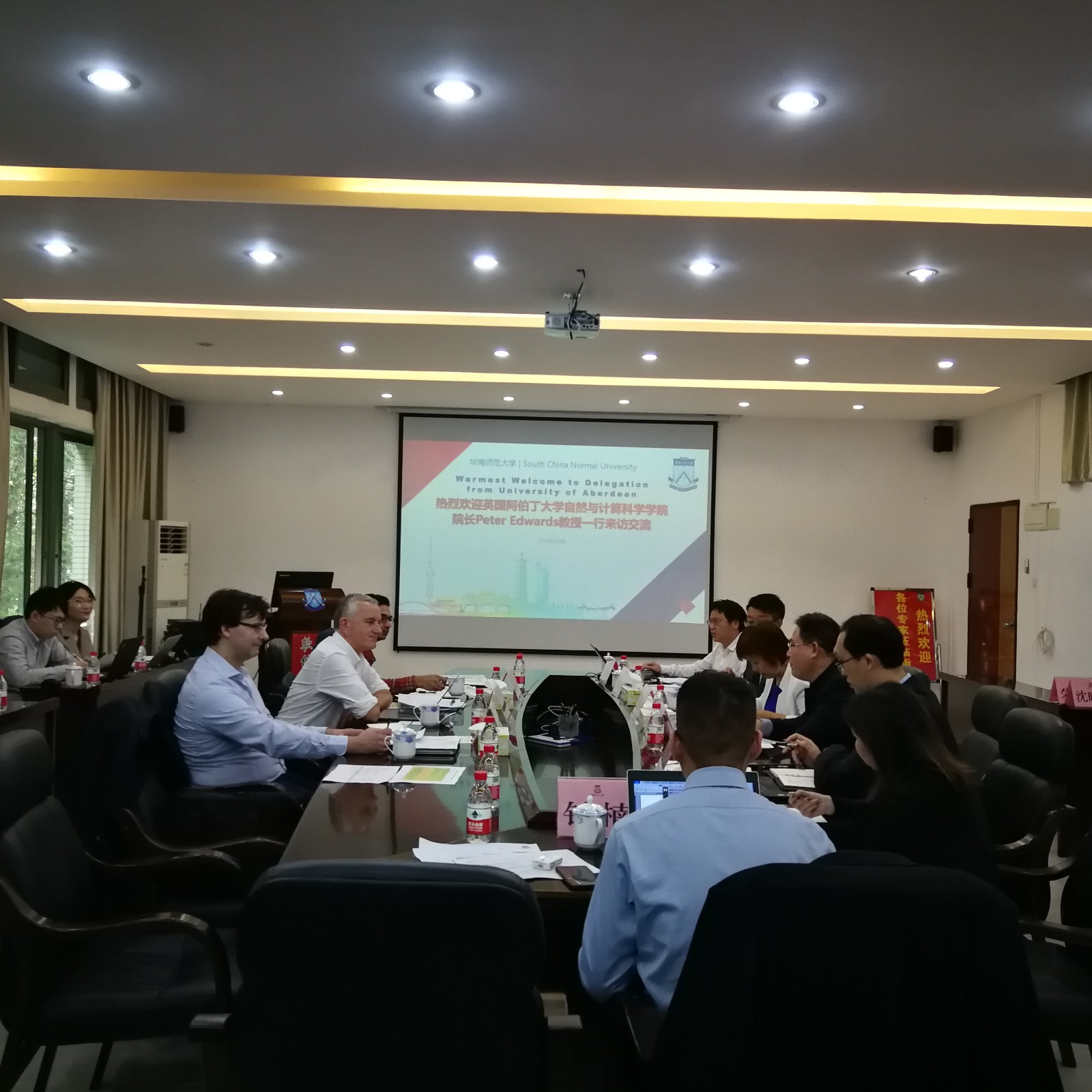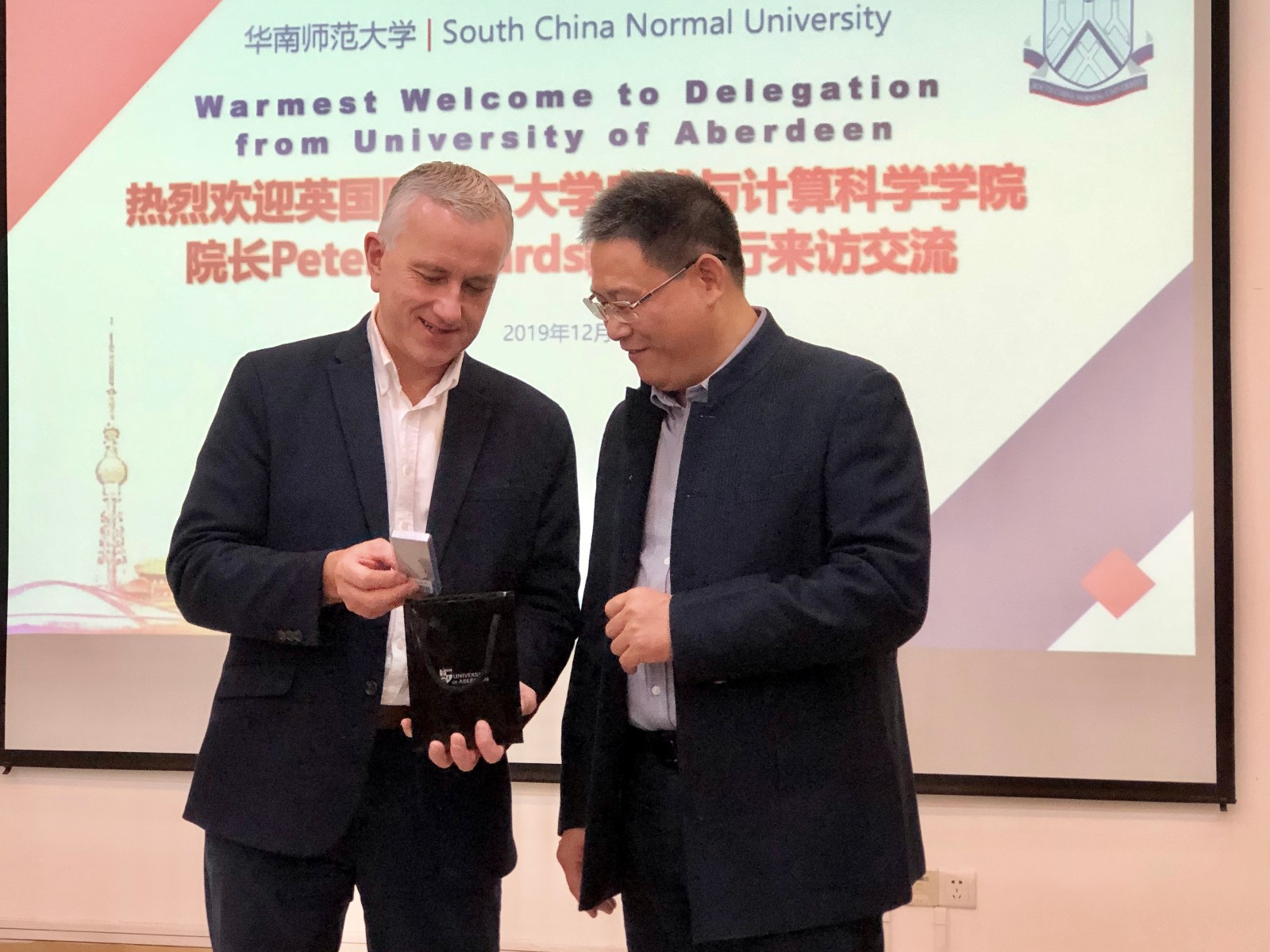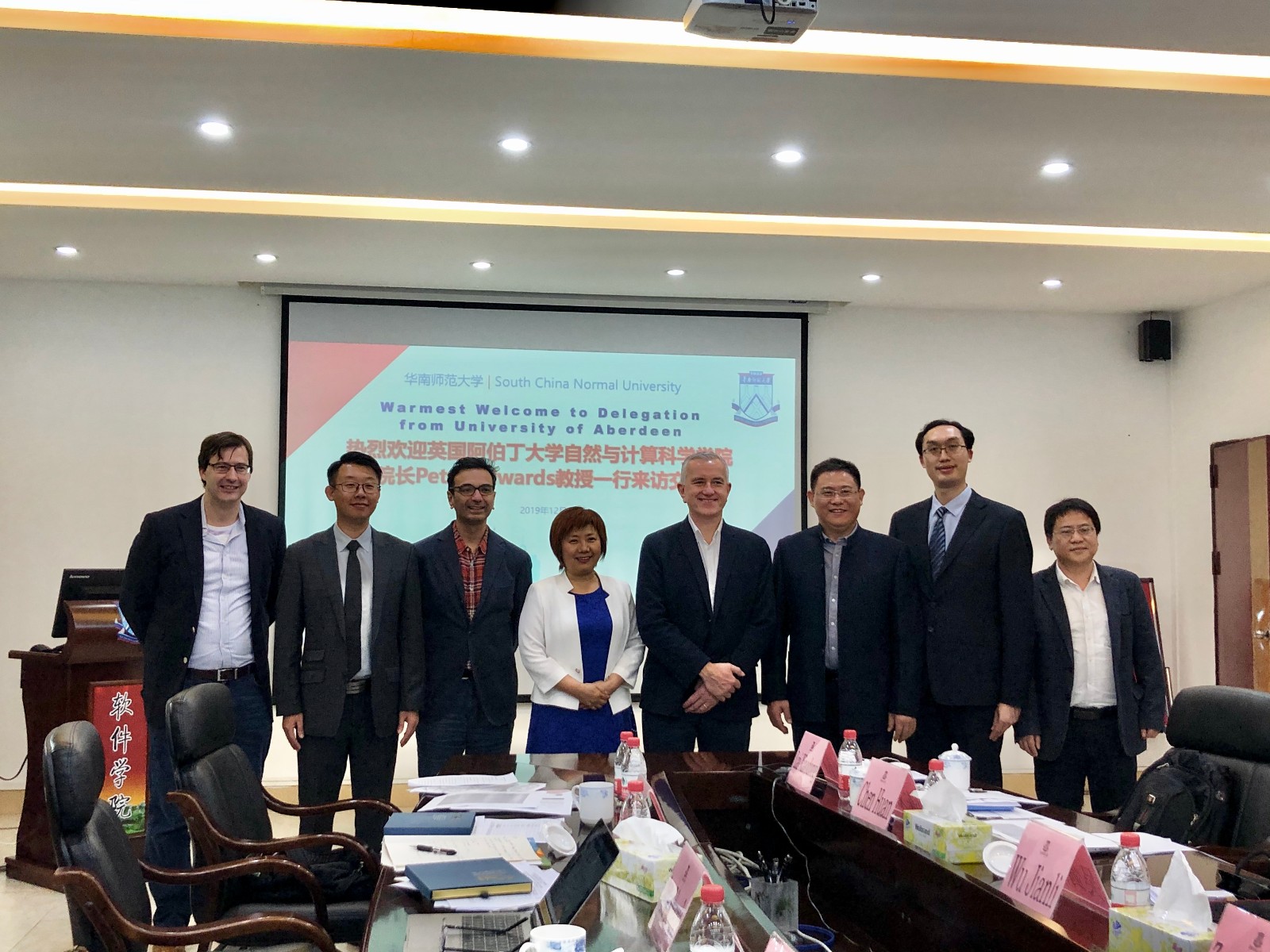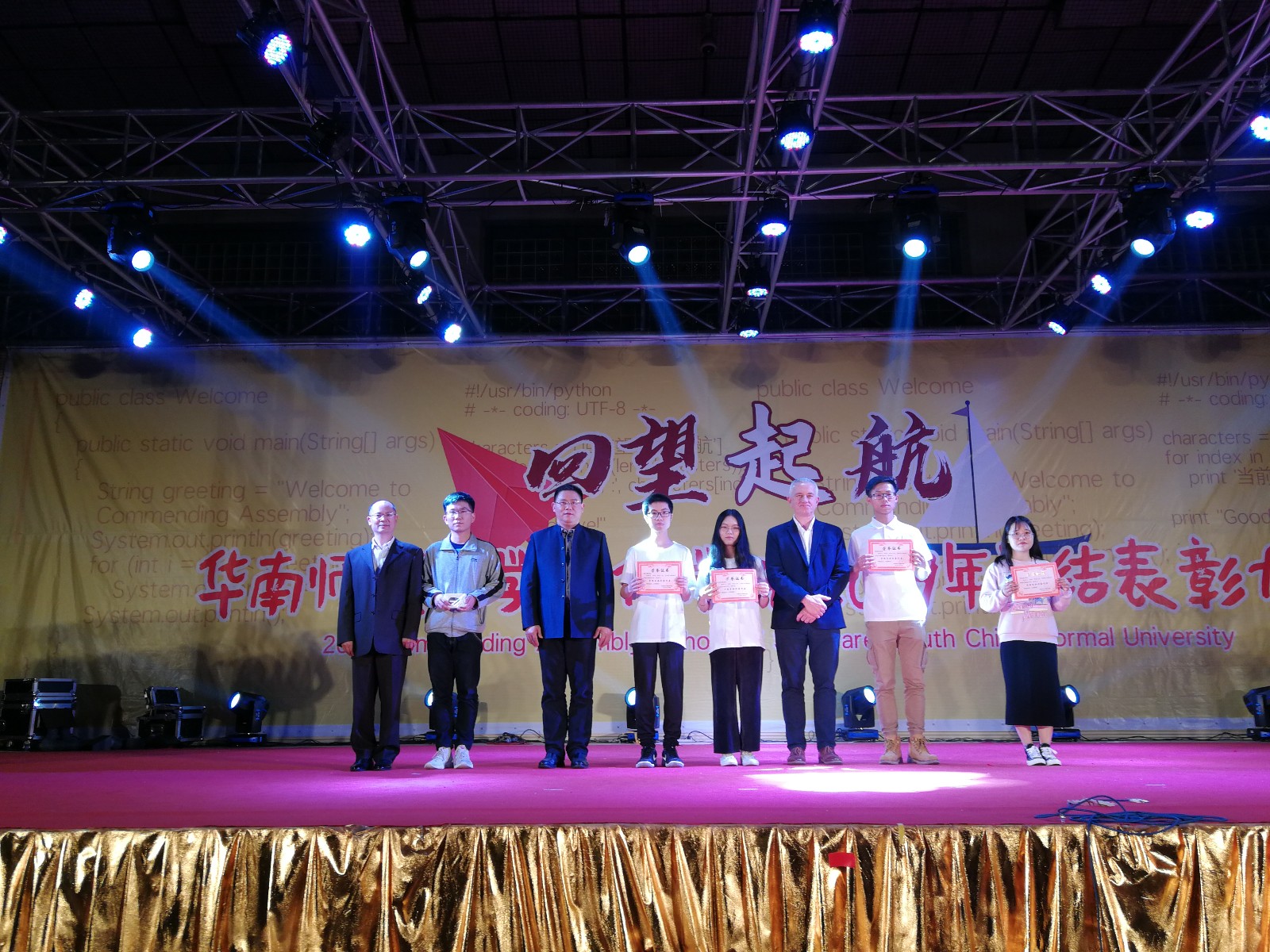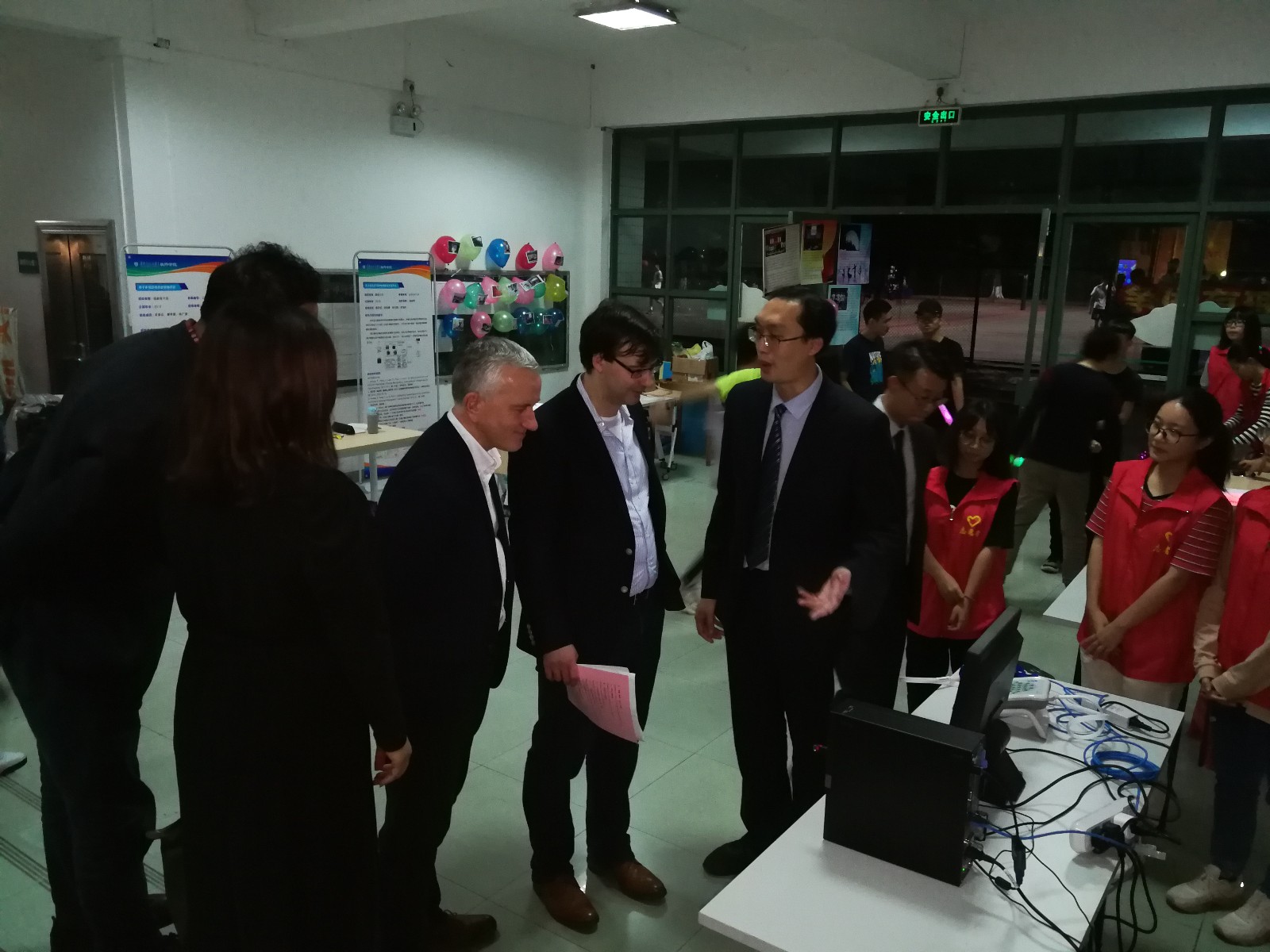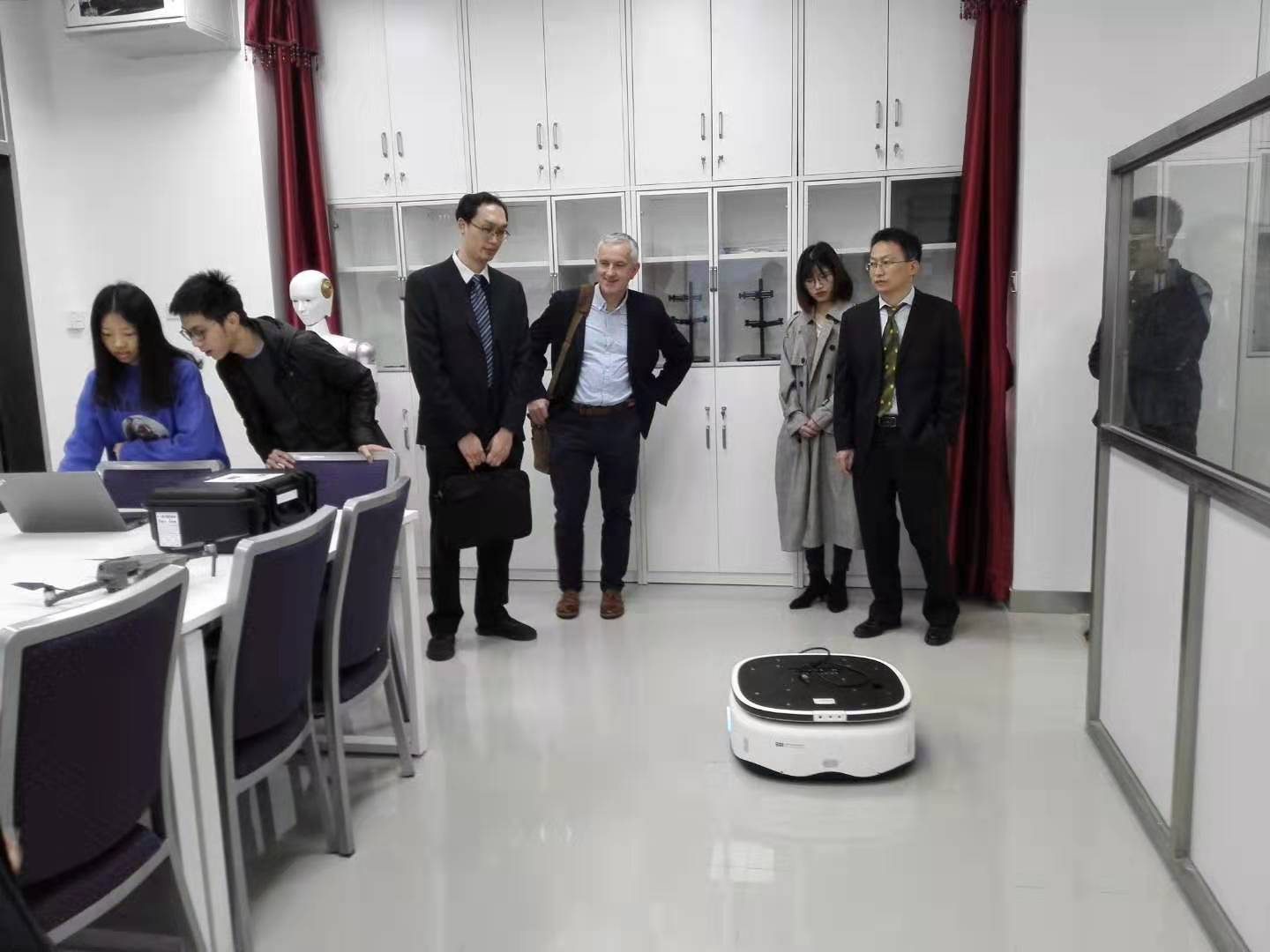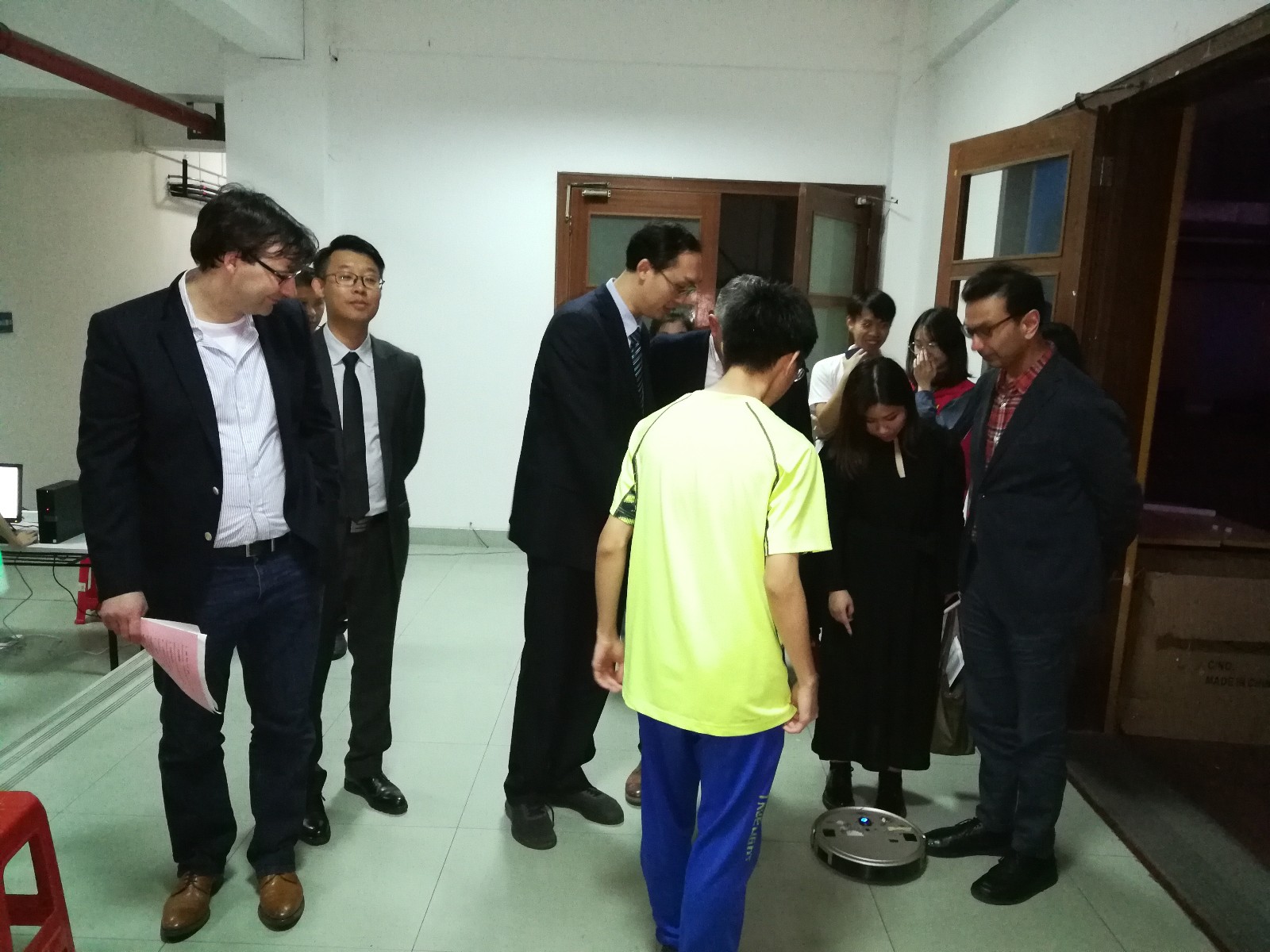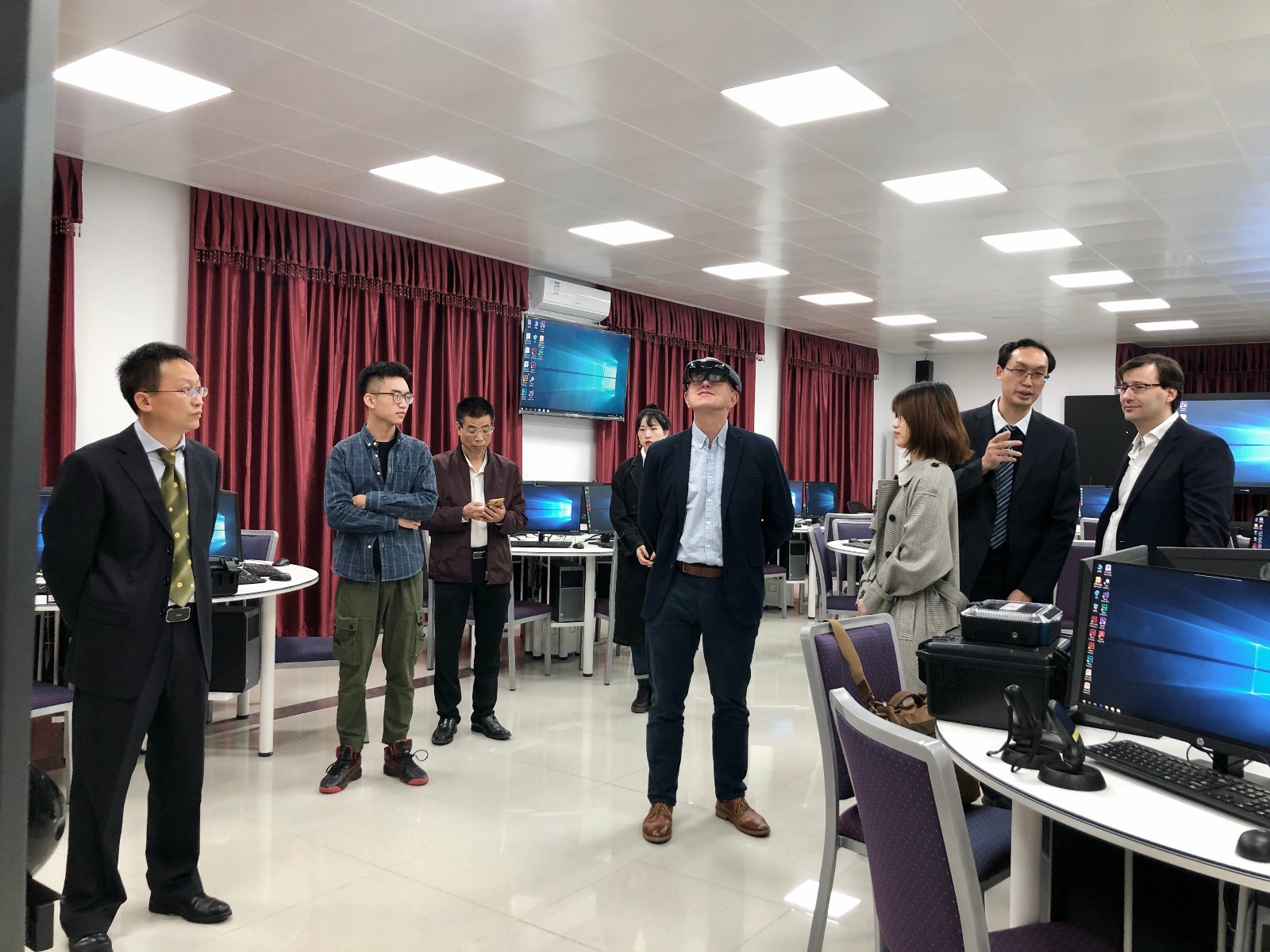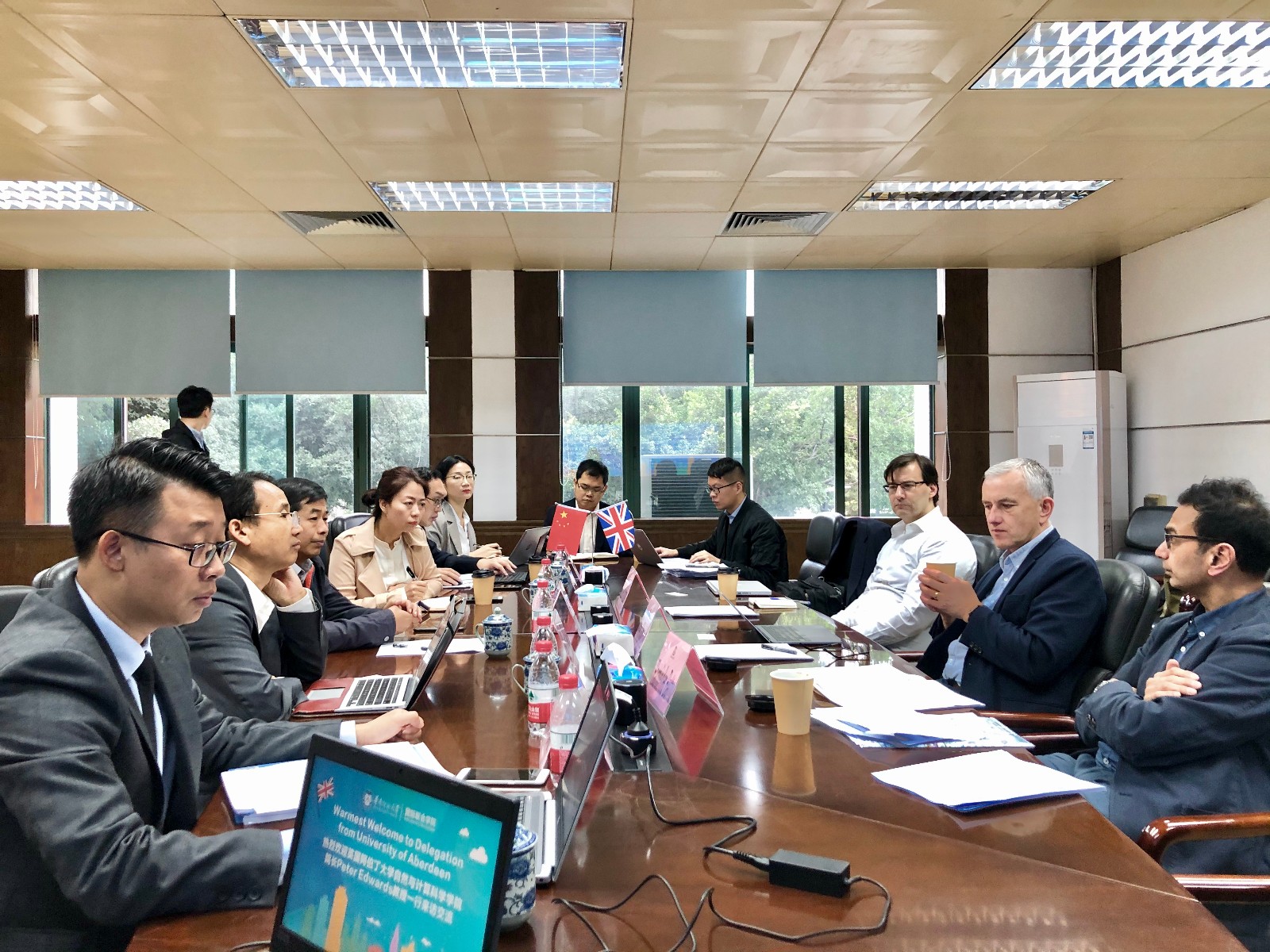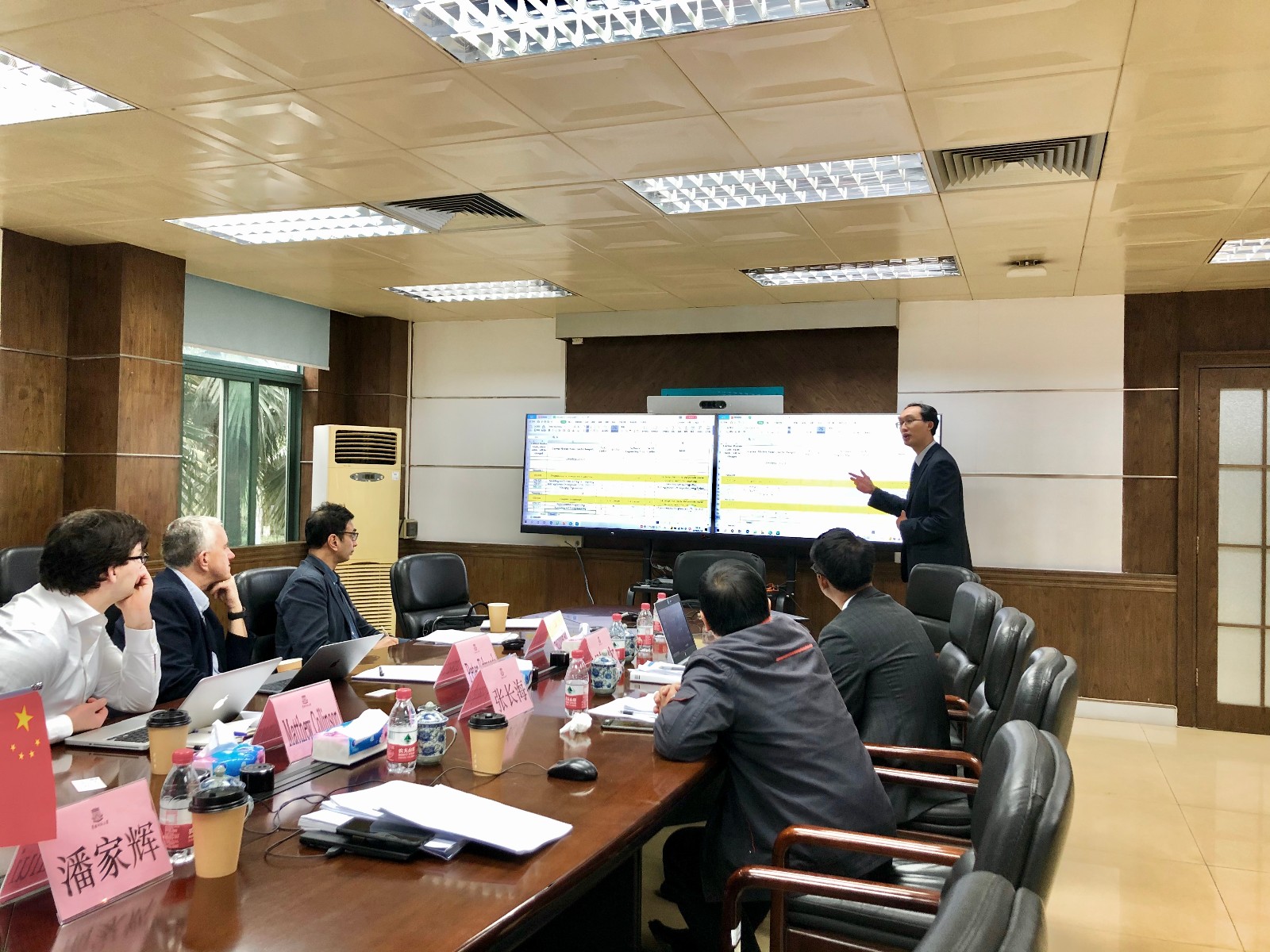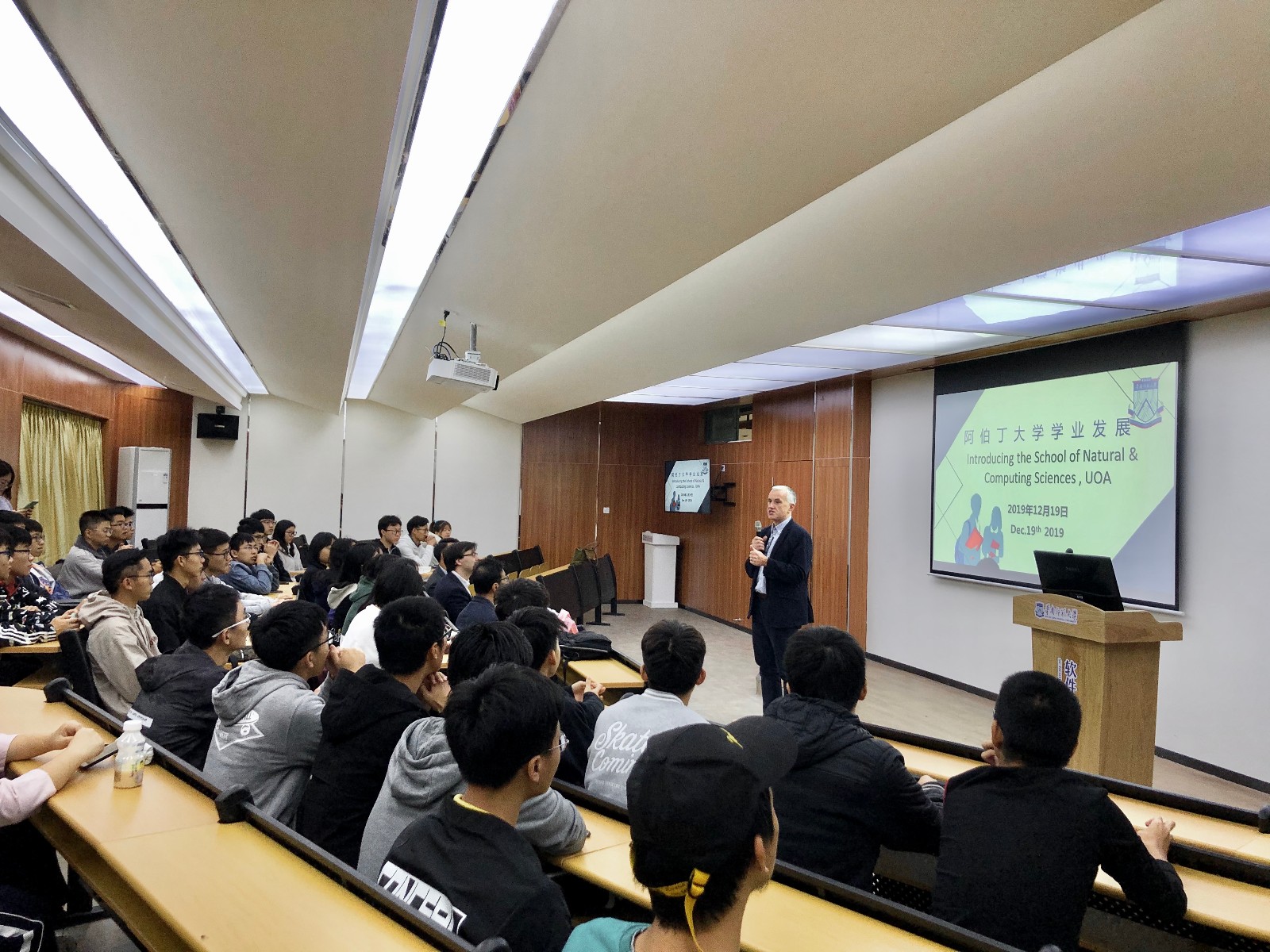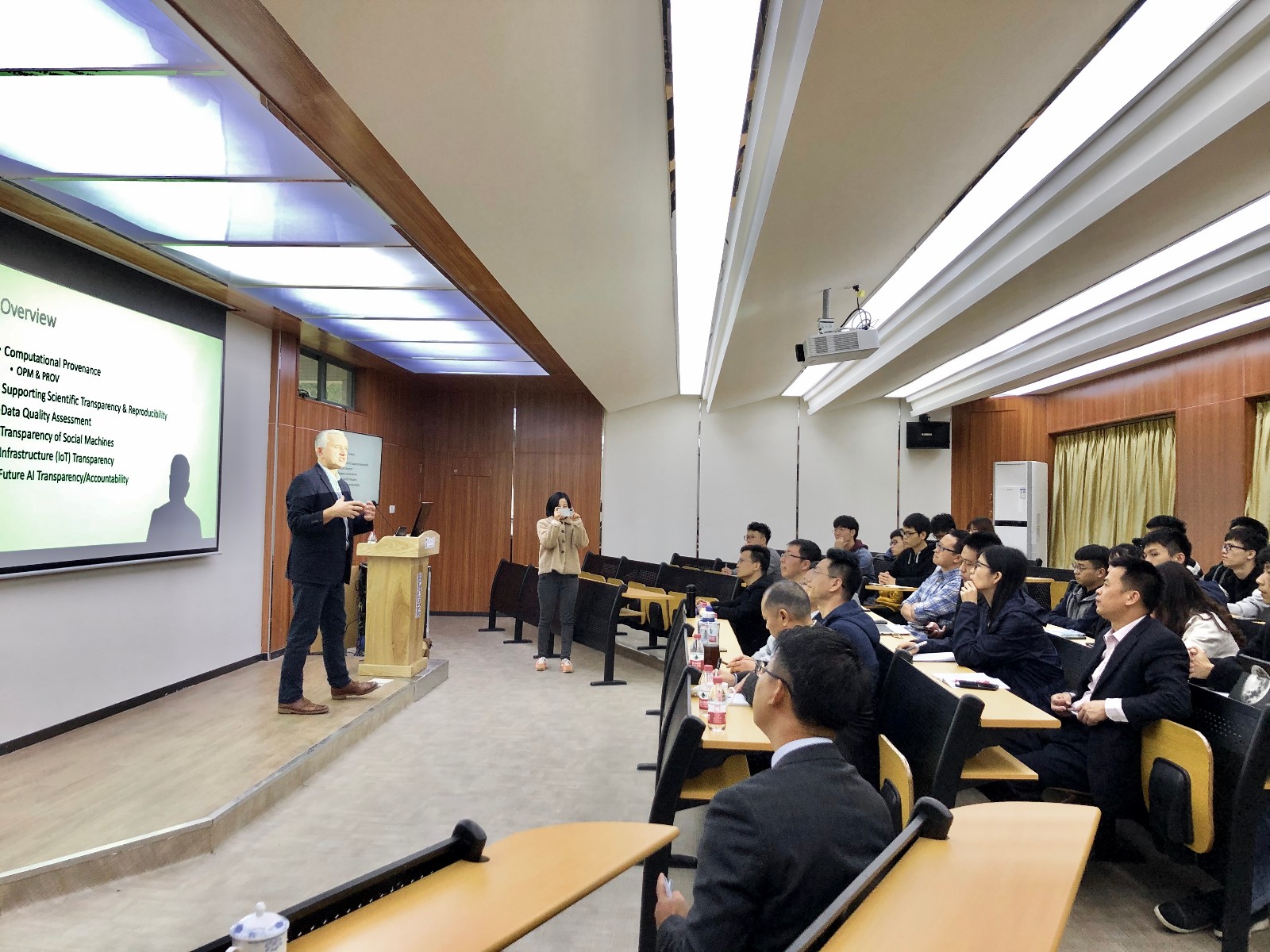On 18-19 December 2019, Prof. Peter Edwards, Head of School of Natural and Computing Sciences, Dr. Harminder Battu, Dean of International Student Pathways, Dr. Matthew Collinson, Discipline Directors of Undergraduate Pathway in Computing Science visited the School of Software, SCNU. During the visit, they participated in several meetings for joint institute application and organized lectures for lecturers and students, as well as be invited to 2019 Annual Student Ceremony.
On the afternoon of 18 December, both parties held a meeting to discuss Joint Institute cooperation, Dean of International Business College and Executive Dean of International United College Wu Jianli, Dean of School of Software Zeng Biqing, Vice-Dean of School of Software and Vice-Dean of International United College Chen Huan, Vice-Dean of School of Software Pan Jiahui, Coordinator of IUC Zhong Nan participated in the meeting. During the morning meeting, both parties had a discussion on Joint Institute application, program matching, course introduction, faculty dispatch, teaching quality assurance, etc. In the evening, the delegation of UoA was invited to 2019 Annual Student Ceremony, Prof. Peter Edwards delivered an address and presenting the prize of Academic Excellence to students.
On of 19 December morning, the delegation of UoA had a lab visit tour with Yu Songsen, Vice-Dean of School of Software, Pan Jiahui, Vice-Dean of School of Software. The postgraduates of School of Software introduced the research achievements and presenting the operation of robots and software on Big Date. Afterwards, both parties had a second meeting on Joint Institute cooperation and reaching a consensus on talent cultivation plans.
In the afternoon, the School of Software organized two lectures. Firstly, Dr. Matthew Collinson gave a student lecture on “Introducing the School of Natural & Computing Sciences, UoA”, and passed gifts to Students of SCNU-UoA Articulation Programs. Besides, Prof. Peter Edwards delivered a research lecture on “Computational Models of Provenance as a Substrate for Trust, Transparency & Accountability”, and having a discussion with the School of Software’s lecturers deeply.
